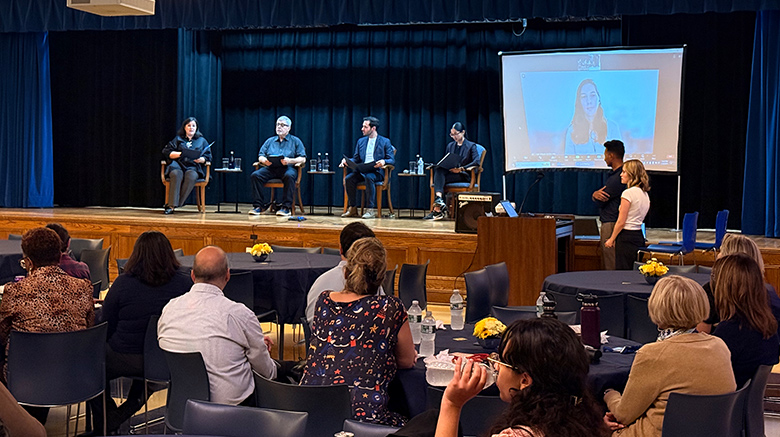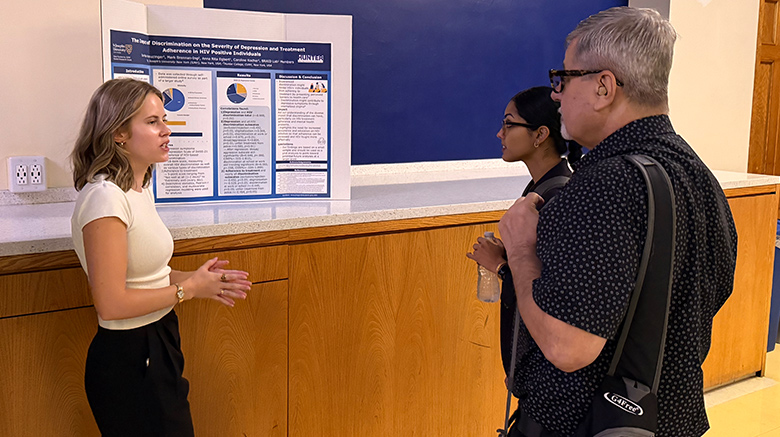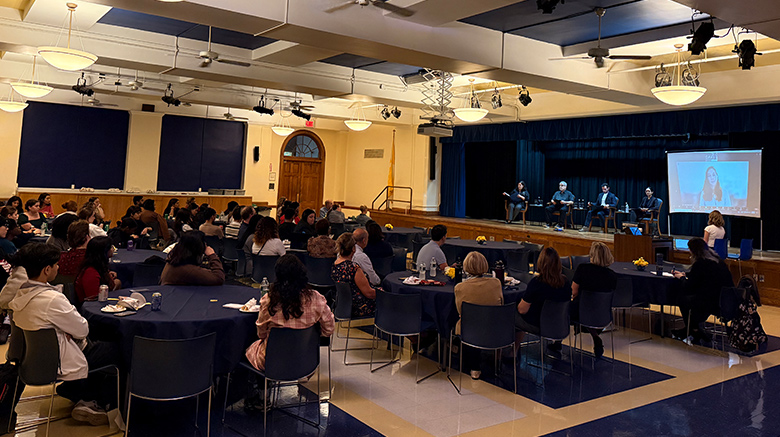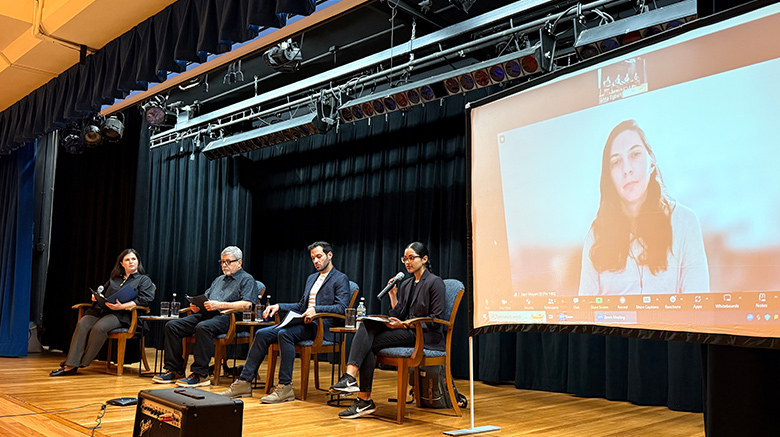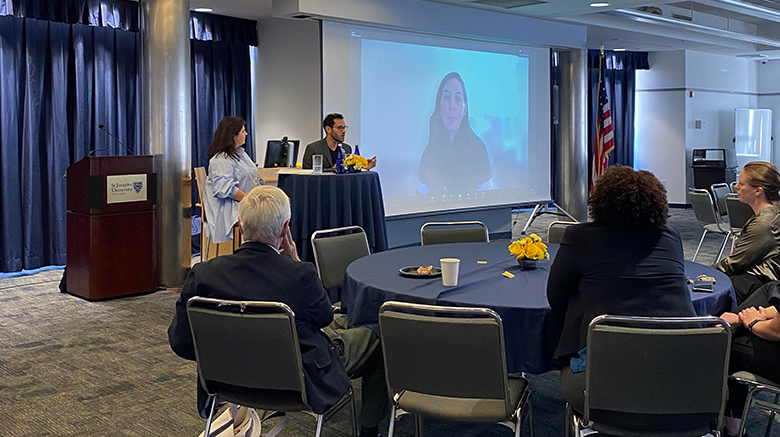In recognition of Diversity, Equity and Inclusion Week, both campuses recently hosted events to bring awareness to critical topics and emphasize that promoting diversity, equity and inclusion is a responsibility that calls for the active engagement of individuals and communities.
On the Brooklyn Campus, students, faculty and staff attended Bridging the Gaps: Addressing Health Disparities in Underrepresented Groups with Neuroinfectious Diseases, that focused on health disparities and healthcare challenges faced by underrepresented groups of people struggling with neuroinfectious diseases, like older women with HIV, LGBTQ+, people of color and children with long-COVID. On the Long Island Campus, the presentation was titled From Isolation to Integration: Addressing Stigma and Mental Health Challenges During and After COVID-19 Pandemic.
Moderated by Anna Egbert, Ph.D., assistant professor of psychology at SJNY, panelists were Harry Voulgarakis, Ph.D., assistant professor of child study at SJNY; Mark Brennan-Ing, Ph.D., director of research and evaluation at the Brookdale Center for Healthy Aging, Hunter College, City University of New York; Jasmine Manalel, Ph.D., senior research associate at the Brookdale Center for Healthy Aging, Hunter College, City University of New York; and Sapir Elkayam, research associate and faculty of psychology at the University of Warsaw in Poland.
“The problem with long-COVID is that it can be quite hard to detect by physicians because the symptoms are overlapping with other possible conditions,” said Ms. Elkayam. “Internalizing stigma impacts people’s identity, making them feel ashamed, less self efficient and lowers their self esteem. Internalized stigma is common in people with long-COVID, often leading to nondisclosure of symptoms.”
Through exploring how factors like age, race/ethnicity, gender and sexual orientation influence disparities in health, the discussions highlighted the ways stigma and discrimination impact access to healthcare, treatment adherence and health outcomes.
“Let’s remember that our commitment to diversity, equity and inclusion in healthcare is not just about rhetoric,” said Dr. Egbert. “It’s about transforming lives, breaking down barriers, and fostering an environment where everyone feels valued and understood.”
Long Island’s From Isolation to Integration discussion focused on addressing and explaining the different kinds of stigmas and challenges that arose during the COVID-19 pandemic.
“Unless they have significant respiratory symptoms or severe COVID-like symptoms, we are very quick to say children were less impacted,” said Dr. Voulgarakis. “This stigma on children is due to a lack of research and the belief that kids are more resilient towards sicknesses, especially COVID-19. What I want to challenge people to think about is bringing awareness, creating space and ways to invite people to feel ok talking about what they are going through.”

